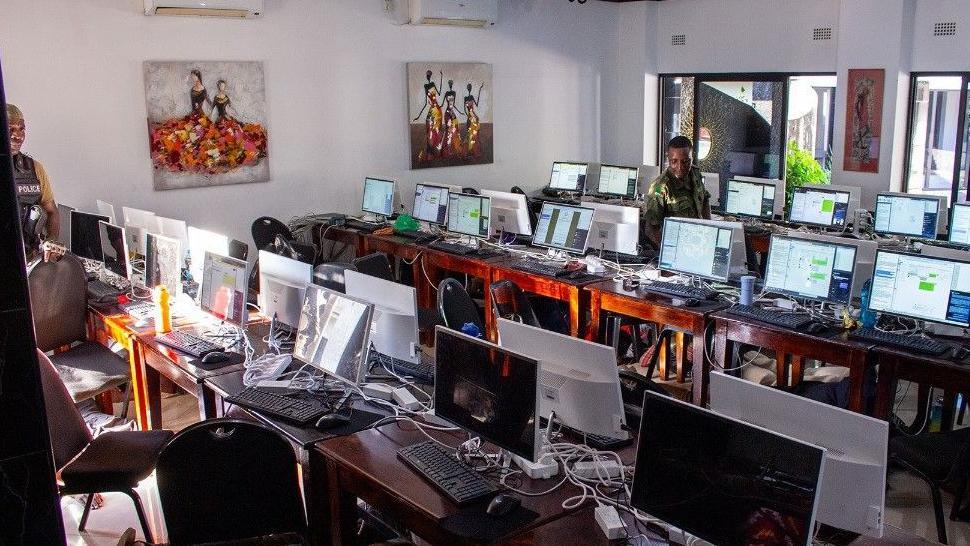Twenty-two Chinese nationals have pleaded guilty to committing cyber-related crimes in Zambia.
They are among the 77 suspects who were arrested in April in connection with what authorities described as a “sophisticated internet fraud syndicate.”
The attack on a Chinese-run company in the capital Lusaka followed an alarming rise in cases of internet fraud in the country, targeting people in countries around the world.
The Chinese nationals will be sentenced on Friday, local media report.
There are increasing cases of Zambians losing money from their mobile and bank accounts due to money laundering schemes that are spreading to other countries, the Drug Enforcement Commission (DEC) said in April.
People in Singapore, Peru, the United Arab Emirates (UAE) and others across Africa are also being targeted by the online scam, Zambian authorities said.
Dozens of young Zambians were also arrested after allegedly being recruited as call center agents in fraudulent activities including internet fraud and online scams, the DEC said during the arrests.
After a trial that lasted several weeks, the 22 Chinese nationals, including one woman, pleaded guilty to three charges: computer-related misrepresentation, identity-related crimes and illegally operating a network or service.
The 22, along with a Cameroonian national, were accused of manipulating people’s identities online with the intention of defrauding them.
The suspects hold various positions at Chinese-led Golden Top Support Services, the company at the center of the raid.
The company, based in Roma, an upscale suburb of Lusaka, has declined to comment on the allegations.
Li Xianlin, believed to be the company’s director, was accused of operating the network without a license from Zambian authorities.
On Tuesday, the prosecutor asked the court for more details about the charges.
The Zambian nationals were charged in April and released on bail so they could assist authorities with their investigation.
Authorities said the Zambians involved had been tasked “to engage in deceptive conversations with unsuspecting mobile users on various platforms such as WhatsApp, Telegram, chat rooms and others, using scripted dialogues”.
Among the equipment seized were devices that allowed callers to hide their location and thousands of SIM cards.
Eleven Simboxes were discovered during the raid; these are devices that can route calls over real telephone networks.
More than 13,000 SIM cards, both local and foreign, were also seized, which the DEC said “demonstrates the scale of the operation’s reach.”
During the raid, two firearms and approximately 78 rounds of ammunition were seized, and two vehicles owned by a Chinese national linked to the company were also seized.
More about cybercrime in Africa:


Go to BBCAfrica.com for more news from the African continent.
follow us on twitter @BBCAfricaon Facebook at BBC Africa or on Instagram at BBCAfrica
BBC Africa Podcasts







